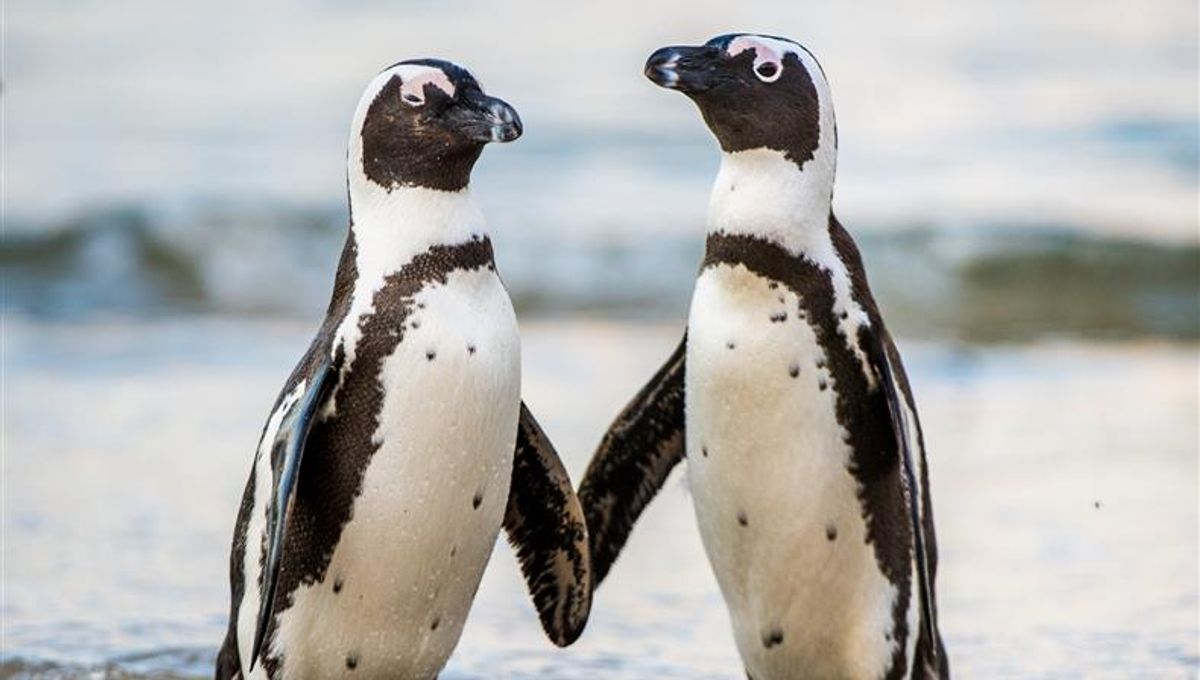
Penguin plumage may look like adorable little tuxedos, but new research has shown they serve a very practical purpose too. It seems African penguins and two of their close relatives use the dots on their bellies as “name tags” that enable them to identify one another, even amid a bustling throng of other penguins.
Humans are not alone in their ability to identify individuals from among their species based on specific marks and characteristics. Previous research has shown that primates are capable of this, but so are others. Paper wasps, for instance, can recognize the faces of other wasps, while some parrots appear to give their offspring names which are articulated as specific squarks.
In birds, the ability to identify individuals has largely been based on audio signals, rather than visual ones. This makes sense if you think that, in most cases, the animals will be hiding in trees and so may not be easy to distinguish visually. However, it seems there are some exceptions to this.
For example, it is known that Bewick’s swans, a particularly diminutive species of swan found in Europe, identify one another via sight. But it is not currently known how they do so. Well, that was until the penguins waddled onto the researchers’ radar.
It seems a colony of African penguins (Spheniscus demersus) held at the Zoomarine Italia, a marine park near Rome, may well hold a clue as to how birds recognize one another.
According to Luigi Baciadonna, a psychologist who conducted the work while at the University of Turin, the little dots on these bird’s chests are striking, reports Science. The patterns appear to be unique to each penguin, allowing zookeepers to identify and keep an eye on the animals they look after. So do the birds use these markings for the same purpose?
To test it, Baciadonna and colleagues set up a simple test at the park to explore it. At feeding time, a penguin would be gently ushered into a small enclosure. At the end of the space were two life-size photographs of other penguins – one of the enclosed penguin’s mate and the other of another member of its colony.
The aim was to see if the enclosed penguin would spend more time looking at its mate than it did the other image, which, they believed, would suggest the animal recognized the image.
The researchers found that the penguins did indeed spend longer looking at the photo of their mate (23 seconds on average) than they did the other penguin and that they spent almost double the time standing next to them.
Following this, the team edited the photo of the penguins to remove their dots. They then repeated the experiment with two images – one of the penguin’s mate and one with the same bird without its dots. Once again, the birds spent more time looking at the image of their mate with their markings.
Finally, in a third test, the penguins were shown two photos similar to the first test (with a photo of their mate and another member of their colony), only in this version the researchers removed the dots from both images. And, as you may have guessed, the birds did not seem to recognize their mate.
It seems then that the ability to recognize other individuals from the same species is an ability held by more animals than previously thought. We bet you won’t look at penguins the same way again.
The study is published in Animal Behaviour.
[H/T: Science]
Source Link: African Penguins' Little Tuxedo Suits Are More Useful Than Previously Thought